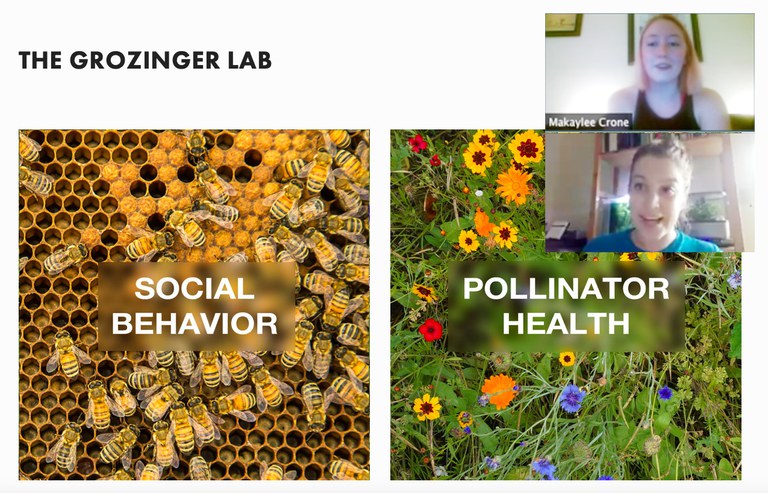Posted: July 10, 2020
In recent years, science, technology, engineering, and math (STEM) activities have become popular workshops for children to increase an interest in STEM careers later in life. These activities are particularly important for female, underrepresented, and underserved populations to show that they are welcome in these types of environments. However, the pandemic has thrown a wrench into hands-on, in person activities.
Previously the Grozinger lab, in partnership with the College of Education's STEM Pillars Program, has developed outreach workshops for children and parents that teach about evolution of physical traits and social behavior by allowing them to examine insect specimens and live bumble bee colonies (see "What are those bees doing in your library?"). These workshops have taken place at various libraries around Centre County and were scheduled for the Schlow Library in downtown State College this summer, but had to be canceled due to the pandemic.
The instructors for this workshop, graduate students Makaylee Crone and Sarah Kania, decided to change directions and have an event for families that could be held over Zoom. The event, "Ask a Scientist: What's it like to be(e) a scientist?" walked families through the daily life of a scientist and shared their journeys to get to these jobs. During the presentation, attendees were asked to submit questions they had. The children were very interested in learning more about bee behavior and their interactions with flowers. There were also questions centered on daily interactions with insects and how our use of different chemicals at home, such as mosquito repellant, affected pollinators.
Crone and Kania discussing the work done in the Grozinger lab at Penn State
It was also important to Kania and Crone that children know that anyone can be a scientist, and that you don't need a ton of money or fancy equipment to perform science experiments. This hits home for Crone in particular, as before the pandemic she conducted most of her work in the lab. When the university asked all personnel to work from home, she set up a small lab in her office to continue her experiments on orchard bee diets. (You can learn more about orchard bees and how to make hotels and its associated webinar from Dr. Natalie Boyle).
Crone's workspace before and during the pandemic
This lesson is also important to Kania, as most of her work is conducted outside with little equipment. These two different research styles highlighted the diversity of scientific research and the flexibility of scientists during a pandemic.
One of Kania's field sites at Russell E. Larson Agricultural Research Center
Kania and Crone encourage other scientists to develop these types of workshops for the public. With how easy it is to share a love of science over Zoom, everyone should know what it's like to be a scientist!
Families interested in other virtual summer Schlow Library programs can check out their Calendar. Future activities include making cartoons, storytimes, and crafting fairy gardens. Children's programs are organized by Paula Bannon and Katie Brennan.
By Makaylee Crone and Sarah Kania


